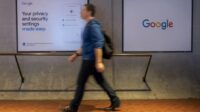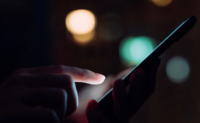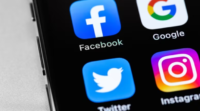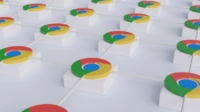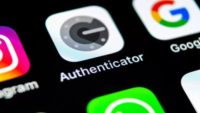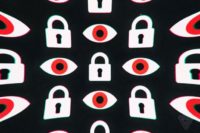“Dark Web Report” is about to be free for everyone, and, yes, you should care. The title may make this feature sound like some unappealing podcast, but it’s actually a handy Google security tool that everyone should try. Previously exclusive to those who pay for Google One — the paid service that launched around the time Google began suddenly telling everyone their cloud storage was full — Dark Web Report is rolling out to (basically) all free Google Account holders at some point this month (as of this writing). In…
Read MoreTag: Google
Governments can spy via smartphone push notifications, Apple and Google confirm | Mashable
Well, here’s something you might have never considered: Your iPhone and Android device push notifications can be used by law enforcement or governments to spy on you. U.S. Senator Ron Wyden sent a letter to the U.S. Department of Justice with a concern that his office was attempting to investigate. According to Senator Wyden’s letter as first reported by Reuters, his office received a tip in the Spring of last year about how foreign governments were requesting push notification data from companies like Apple and Google. Read full story here:…
Read MoreFederal government reaches deal with Google on Online News Act | CBC News
Google and the federal government have reached an agreement in their dispute over the Online News Act, sources tell Radio-Canada and CBC News. The agreement would see Canadian news continue to be shared on Google’s platforms in return for the company making annual payments to news companies in the range of $100 million, a source with knowledge of the negotiations told CBC News. The federal government and Google agreed on the regulatory framework earlier this week, a government source familiar with the talks told Radio-Canada. Read full story here: Federal government reaches…
Read MoreSecurity experts urge Chrome users to patch new zero-day exploit immediately | TechSpot
What just happened? Google just released an emergency security update to patch a newly discovered vulnerability in the Chrome web browser. The buffer overflow-based exploit was discovered by Clément Lecigne, a member of the Google Threat Analysis Group (TAG). Google acknowledged the issue and pledged to withhold further details about the vulnerability until the patch has been widely deployed. Read full story here: Security experts urge Chrome users to patch new zero-day exploit immediately | TechSpot
Read MoreGoogle Is Finally Trying To Kill Passwords — Here’s How | Tom’s Guide
Google will soon make two-factor authentication (2FA) mandatory for all Google accounts. From May 10, Google will ask people who have enrolled in two-step verification (2SV) (the abbreviation Google uses) to confirm it’s really them with just a tap of a Google prompt on their phone. “Soon we’ll start automatically enrolling users in 2SV if their accounts are appropriately configured,” added Mark Risher, director of Product Management, Identity and User Security at Google. Read full story here: Google Is Finally Trying To Kill Passwords — Here’s How | Tom’s Guide
Read MoreGoogle And Apple Are Banning Technology For Sharing Users’ Location Data | The Verge
You may have never heard of the company X-Mode Social, but its code may be in some of the apps on your phone, tracking and selling your location data. Now, Google and Apple are trying to put a stop to it. According to a Wall Street Journal article, the tech companies have told developers to remove X-Mode’s code from their apps, or risk getting them pulled from their respective app stores. X-Mode works by giving developers code to put into their apps, known as an SDK, which tracks users’ location and then…
Read MoreWhat Is Contact Tracing? Here’s What You Need To Know About How It Could Affect Your Privacy | CBC News
For weeks, Canadians have been hearing public health officials talk about the importance of testing and tracing: Test to know who has COVID-19; trace to know who might be infected so you can test them, too. There have been significant efforts on both fronts to improve capacity. And part of that effort has taken contact tracing into the digital age. What does that involve and what does it mean for your privacy? Read full story here: What Is Contact Tracing? Here’s What You Need To Know About How It Could…
Read MoreCOVID-19: What Is Digital Contact Tracing And Is Canada Using It? | CTV News
TORONTO — Canadian officials are turning their attention to digital contact tracing to prevent the spread of coronavirus, a strategy experts warn may come with significant privacy concerns. Officials in Newfoundland and Labrador are the latest in Canada to suggest the use of voluntary contact tracing apps that would use cellphone data to monitor people’s movements and warn them of any contact with COVID-19 positive patients, eliminating an arduous task usually performed manually by public health departments. Citing examples from Singapore and South Korea — two countries actively engaged in…
Read MoreACLU Outlines Privacy Concerns For Contact Tracing Tech | Engadget
As Google and Apple prepare to team up on surveillance tech to help track the spread of Covid-19, privacy watchdogs at the American Civil Liberties Union (ACLU) are urging the government and tech companies to take a tougher stance on privacy. The ACLU published a lengthy white paper outlining privacy concerns they say need to be taken into account in order for contact tracing tech to be effective. Apple and Google’s proposal would use bluetooth data to detect phone owners’ potential exposure to people who have tested positive for Covid-19.…
Read MoreApple And Google Are Building Coronavirus Tracking Tech Into iOS And Android | CNET
The two companies are working together, representing most of the phones used around the world. Two of the tech industry’s biggest players are working together to fight the coronavirus, announcing a new set of tools that could come to a majority of smartphones around the world. The new technology, outlined in white papers published by Apple and Google Friday, relies on Bluetooth wireless radio technology to help phones communicate with one another, ultimately warning people about people they’d come in contact with who are infected with the coronavirus. Apple and Google plan to…
Read More
